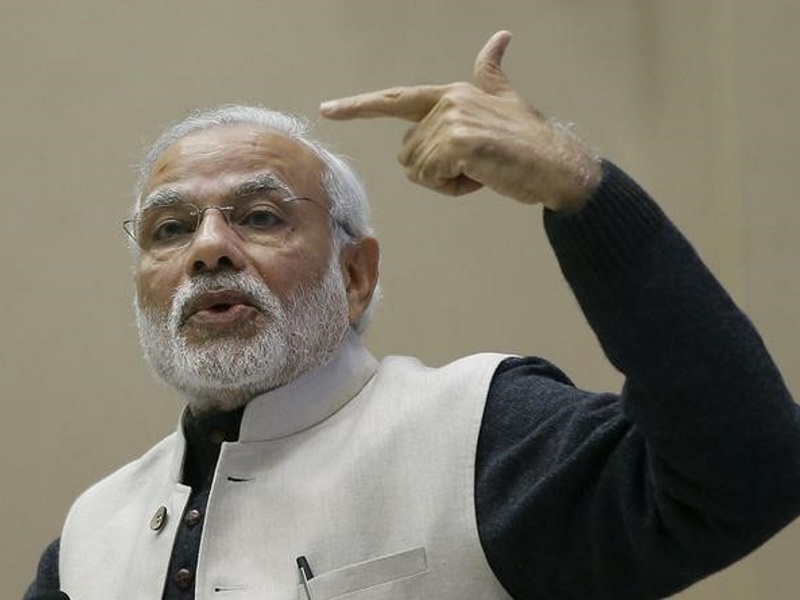- Home
- Science
- Science News
- India to Establish Gravitational Research Lab, Says Prime Minister Modi
India to Establish Gravitational Research Lab, Says Prime Minister Modi

In his monthly radio programme Mann ki Baat, Modi said Indian scientists were also in the research team that studied gravitational waves.
The laboratory will be third of its kind in the world after Hanford in Washington and Livingston in Louisiana, both in the US.
"Recently the Gravitational Waves have been discovered by the scientific community of the world, which is indeed a major achievement. We should be proud of the fact that Indian scientists were also part of it. Keeping this in mind, we have taken a decision to open a LIGO (Laser Interferometer Gravitational-Wave Observatory) in India," said Modi.
LIGO is a national facility for gravitational-wave research, providing opportunities for the broader scientific community to participate in detector development, observation, and data analysis.
The prime minister announced that within its limited resources India will also participate and contribute in the research through the LIGO.
(Also see: Meet LIGO, the World's Most Sophisticated Science Machines)
Earlier this month, the Union cabinet approved a proposal to establish a state-of-the-art gravitational wave observatory in India in collaboration with the Laser Interferometer Gravitational-wave Observatory (LIGO) in the US.
The "in principle" approval for the LIGO-India project for research on gravitational waves - a discovery that is regarded as the breakthrough of the century - is piloted by the Department of Atomic Energy and Department of Science and Technology (DST), a press release said.
For the latest tech news and reviews, follow Gadgets 360 on X, Facebook, WhatsApp, Threads and Google News. For the latest videos on gadgets and tech, subscribe to our YouTube channel. If you want to know everything about top influencers, follow our in-house Who'sThat360 on Instagram and YouTube.
- Samsung Galaxy Unpacked 2025
- ChatGPT
- Redmi Note 14 Pro+
- iPhone 16
- Apple Vision Pro
- Oneplus 12
- OnePlus Nord CE 3 Lite 5G
- iPhone 13
- Xiaomi 14 Pro
- Oppo Find N3
- Tecno Spark Go (2023)
- Realme V30
- Best Phones Under 25000
- Samsung Galaxy S24 Series
- Cryptocurrency
- iQoo 12
- Samsung Galaxy S24 Ultra
- Giottus
- Samsung Galaxy Z Flip 5
- Apple 'Scary Fast'
- Housefull 5
- GoPro Hero 12 Black Review
- Invincible Season 2
- JioGlass
- HD Ready TV
- Laptop Under 50000
- Smartwatch Under 10000
- Latest Mobile Phones
- Compare Phones
- Infinix Smart 9 HD
- Lava Yuva Smart
- Samsung Galaxy S25 Ultra
- Samsung Galaxy S25+
- Samsung Galaxy S25
- Realme 14 Pro 5G
- Realme 14 Pro+ 5G
- Itel Zeno 10
- Asus Chromebook CR11
- Lenovo Yoga Slim 9i (2025)
- Asus ROG Flow Z13 (2025)
- Xiaomi Pad 7
- Titan Evolution
- Noise ColorFit Pro 6
- Sony 65 Inches Ultra HD (4K) LED Smart TV (KD-65X74L)
- TCL 55 Inches Ultra HD (4K) LED Smart TV (55C61B)
- Sony PlayStation 5 Pro
- Sony PlayStation 5 Slim Digital Edition
- Blue Star 1.5 Ton 3 Star Inverter Split AC (IC318DNUHC)
- Blue Star 1.5 Ton 3 Star Inverter Split AC (IA318VKU)










